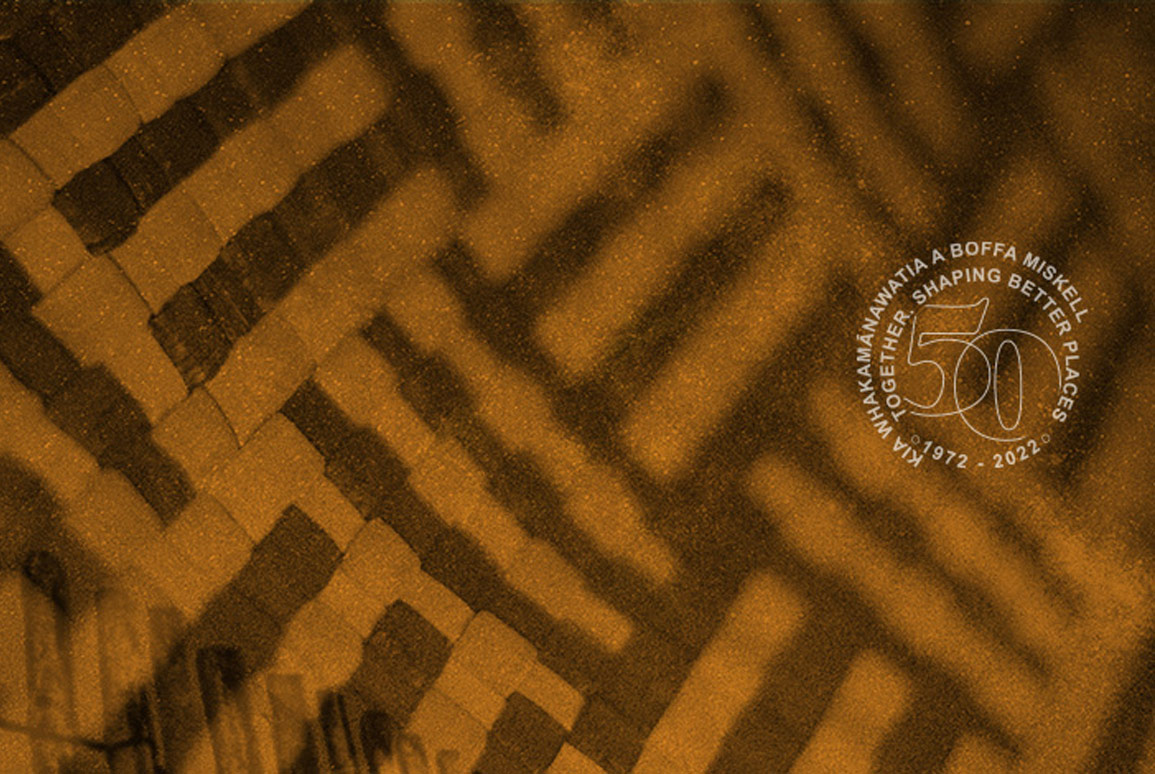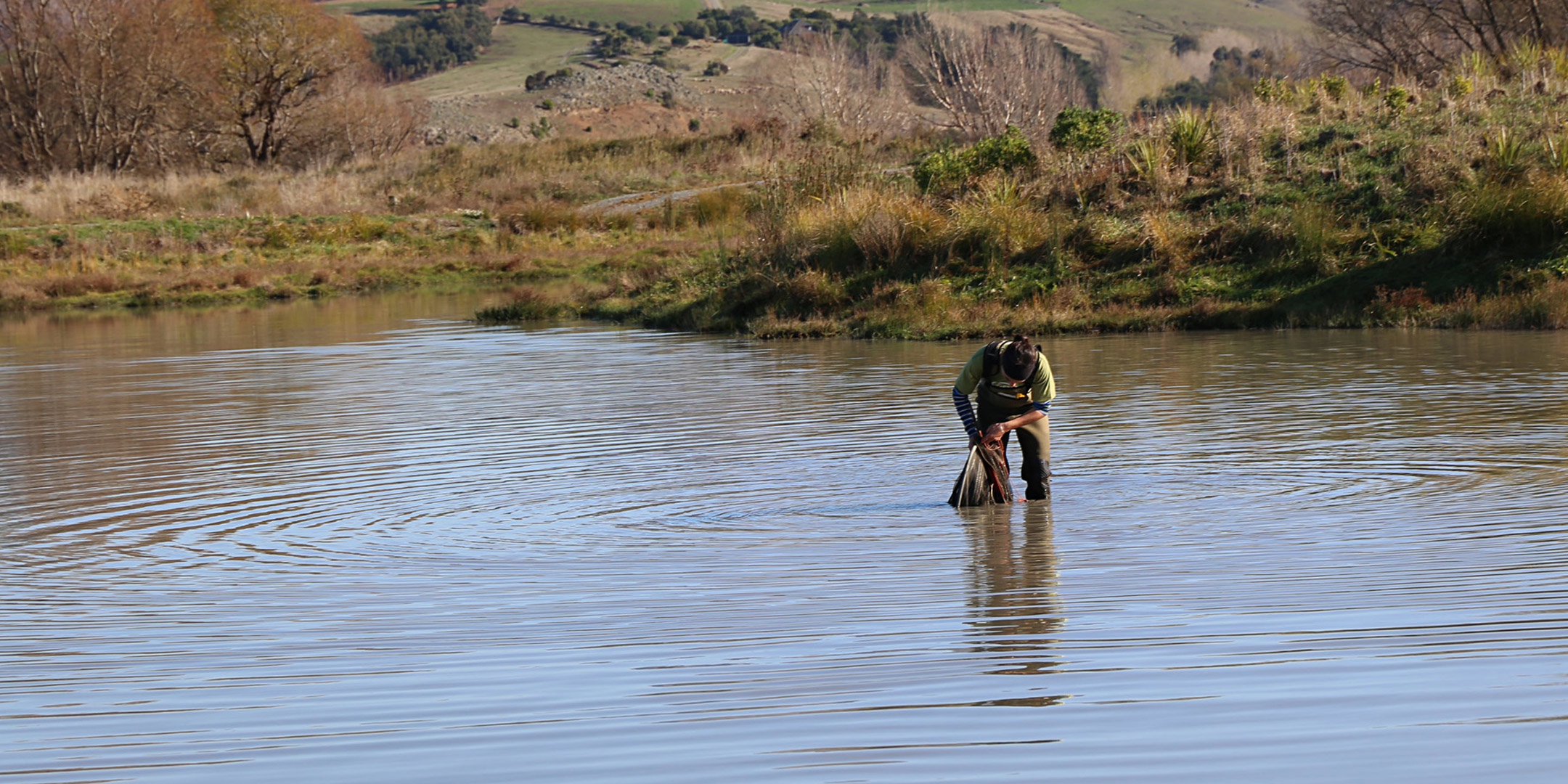Focus on our 50th: The evolution of Te Hīhiri
15 September 2022
A commitment to biculturalism is imbued throughout Boffa Miskell. Kaiwhiri Te Hīhiri – Strategic Advisor Māori, Mapihi Martin-Paul, reflects on the influence of Te Ao Māori and mātauranga Māori in our way of working and project outcomes.

Boffa Miskell has recognised the importance of Te Ao Māori in our professional service offering for more than 20 years. When I joined Boffa Miskell in 2017, as the first Graduate Advisor Māori, I was fortunate to become immersed into what was already an established Te Hīhiri whanau. For me, Te Hīhiri was a collective of consultants with a way of working that I could see was firmly grounded in their whakapapa and cultural identity.
It was this network of Māori consultants, driven by empowering iwi, hapū and whanau Māori, that drew me to Boffa Miskell. When I graduated from Lincoln University the previous year it was important for me to join a company where my professional expertise and whakapapa was understood to go hand-in hand; and so, my own Boffa Miskell journey began. But the company’s endeavour to build its cultural capability had already been a part of its fabric for 15 years prior.
Te Hīhiri was established in following the appointment of our first Kaiarataki / cultural advisor to the Tauranga office in 2002 to support the needs of a specific project. At that time, there had been a broad shift across Aotearoa towards greater recognition of our bicultural country and better acknowledgement of Māori as tangata whenua. Boffa Miskell was inspired by one of the traditional Māori cosmology (creation beliefs) chants as the basis for the discipline name:
- Nā te kune te pupuke From the conception the increase
- Nā te pupuke te hīhiri From the increase (energy) the thought
- Nā te hīhiri te mahara From the thought the remembrance
- Nā te mahara te hinengaro From the remembrance the consciousness
- Nā te hinengaro te manako From the consciousness the desire
- Ka hua te wānanga. Knowledge became fruitful.
Greater recognition of biculturalism and the importance and demand of having in-house expertise steadily increased. In 2010, the company structure of Boffa Miskell changed to recognise Te Hīhiri as a professional discipline. Over the years that followed, the discipline grew exponentially in size and at our peak Te Hīhiri had a presence across all key regions – Tāmaki Makaurau, Tauranga Moana, Waikato Tainui, Te Whanganui a Tara and Te Wai Pounamu.
The current and former members of Te Hīhiri have diverse professional backgrounds, including planning, natural resource management and freshwater science, landscape architecture and heritage management. We are skilled in Te Reo Māori, tikanga and kawa, and joined Boffa Miskell with established whānau, marae, hapū and iwi networks and relationships associated with our office regions and beyond.
On my father’s side I am of Te Arawa ki Ngāti Pikiao descent and on my mother’s side I affiliate to Ngāti Tahu ki Ngāi Te Ruahikihiki; my whakapapa is an integral part of who I am and what drives me in my current role as a Kaiwhiri Te Hīhiri – Strategic Advisor Māori. Our roles ensure a strong sense of biculturalism is embedded in our projects and ensures the outcomes we reach meaningfully recognise, consider, and reflect the values and traditions of iwi, hapū, rūnanga and whanau Māori across Aotearoa.
For me, the work of Te Hīhiri in Te Waipounamu / the South Island has increasingly moved into exploring how mātauranga Māori can be woven together with western science. Mātauranga Māori is a unique body of knowledge that tangata whenua have built over generations, through a deep understanding of the environment; it stems from whakapapa, down into the natural world.
The multi-disciplinary ethos of Boffa Miskell is emphasized through our experience in cultural health monitoring work across the country, bringing together Te Hīhiri with other Boffa Miskell experts such as our terrestrial and freshwater ecologists.
An example of this catalytic collaboration between our professional services, regional council and mana whenua can be seen in our delivery of the Mātauranga Māori Monitoring Programme for the Whakaora Te Ahuriri project. This mātauranga māori monitoring programme sought to integrate cultural values and aspirations into the design of a re-constructed wetland that aimed at improving biodiversity and mahinga kai, attenuate nutrients and sediment, and reinstate some of its original functions for Ngāi Tahu. Our approach included a simple, trusted and culturally appropriate method that involved key inputs by mana whenua. It was critical that the engagement process was seamlessly integrated into the overall design process, as well as with the wider programme partners and steering group members.
Boffa Miskell’s involvement in restoring Ahuriri Lagoon illustrates the evolution of Te Hīhiri as a discipline: this project required the expertise of our cultural advisors and provided an opportunity for Te Ao Māori and mātauranga Māori to drive both the process and outcome, a way of working that has increasingly become engrained in Boffa Miskell’s business-as-usual.
In addition to empowering iwi, hapū and whanau Māori, Te Hīhiri have a unique role within Boffa Miskell in supporting the development and growth of our company’s bicultural capability. We have given effect to this through the development and adoption of several initiatives including Te Kāpuitanga (our in-house cultural capability training programme) and Te Whakawhitinga (our purpose-built cultural design and engagement methodology). More recently, Boffa Miskell launched our Te Reo Māori Policy during Te Wiki o Te Reo Māori that aspires to uplift the status of Te Reo Māori within our business as a living and vibrant language.
As Boffa Miskell hits a significant milestone, celebrating our 50th year as a professional services firm, reflecting on the evolution of Te Hīhiri as a discipline highlights the 20-plus year journey our company has been on to lift our cultural capability and our commitment to empower the entire Boffa Miskell whanau to acknowledge, respect, and honour the bicultural identity of Aotearoa.
Find out more
Finding ways to measure mauri: State of the Takiwā
For further information please contact Mapihi Martin-Paul or Te Pio Kawe


